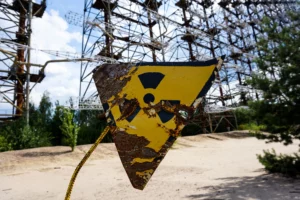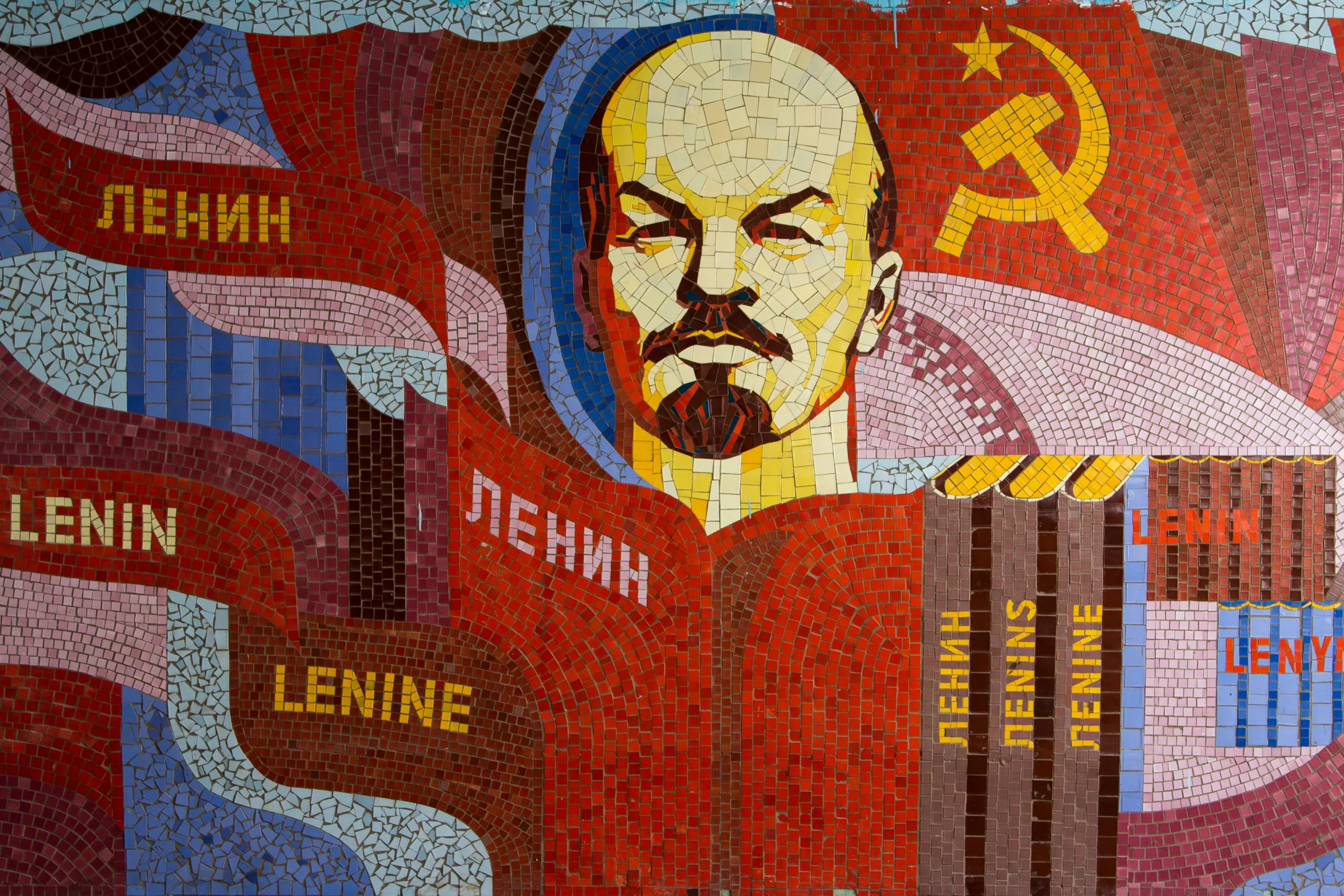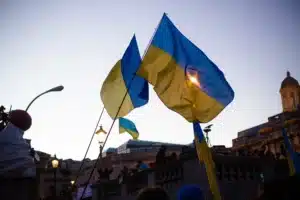
Crisis Unleashed: Dam Destruction and Ukraine’s Nuclear Armageddon Threat
Unraveling Geopolitical Chaos: The Dam Destruction and Ukraine’s Counter-Offensive in the Face of Nuclear Armageddon.

The question “Is Russia a European country?” is as complex and nuanced as the vast nation itself. Straddling two continents, Russia’s identity is intertwined with both European and Asian influences, making it a unique case study in the realm of geopolitics. This article delves into the historical, cultural, and geopolitical facets that contribute to the debate surrounding Russia’s European identity.
Russia’s geography is a tale of two worlds. With 77% of its landmass located in Asia but most of its population living in the European part, Russia embodies a dual identity. The Ural Mountains are traditionally considered the dividing line between Europe and Asia, granting Russia a significant presence on both continents. This unique positioning has historically influenced Russia’s strategic decisions and its interactions with neighboring countries.
Historically, Russia has been deeply intertwined with Europe. From the times of the Kievan Rus, through the era of the Tsars, and into the modern period, Russia has engaged in cultural exchange, conflict, and cooperation with European powers. The adoption of Orthodox Christianity from Byzantium in the 10th century marked the beginning of Russia’s long-standing relationship with Europe, aligning it religiously and culturally with the continent.
Peter the Great’s reign in the early 18th century was a turning point for Russia’s European integration. His extensive reforms and the westernization of Russian society, the military, and the government, aimed to establish Russia as a major European power. The founding of St. Petersburg, a city designed to be Russia’s “window to the West,” symbolizes this shift towards European orientation.
| Aspect | Details |
|---|---|
| Geography | Straddles Europe and Asia; Ural Mountains as the dividing line |
| Historical Ties | Deep connections with Europe since the Kievan Rus |
| Cultural Influence | Orthodox Christianity from Byzantium |
| Modernization Efforts | Peter the Great’s westernization policies |
In the realm of security, Russia plays a pivotal role in Europe. Its vast nuclear arsenal and position as a permanent member of the United Nations Security Council give it significant influence over European and global security matters. The current tensions in Ukraine and the broader Eastern European region highlight the complexity of Russia’s relationship with Europe.
For more insights on the situation, visit Geopolitics Journal on the War in Ukraine.
Economically, Russia is deeply linked to Europe, primarily through its energy exports. Europe’s dependency on Russian gas underscores a critical aspect of their interdependent relationship. This energy bond, while essential, is also a source of leverage and tension between Russia and the European Union.
Despite geopolitical tensions, cultural and social exchanges between Russia and Europe continue. The flow of ideas, art, literature, and people across borders enriches both Russian and European societies, underscoring the deep-rooted connections that transcend politics.
Russia’s contribution to European culture is both profound and enduring. The country has gifted the world with some of the greatest literary works, musical compositions, and artistic masterpieces, which have become integral to the European cultural canon.
Literature: Dostoevsky, Tolstoy, and Chekhov
Music: Tchaikovsky, Stravinsky, and Rachmaninoff
Art: Kandinsky, Chagall, and Malevich
These figures have left an indelible mark on European culture, bridging gaps between East and West and fostering a shared cultural heritage.
Despite the political and military tensions, there are underlying shared values between Russia and Europe. These include a commitment to human rights, democracy, and the rule of law. However, the extent to which these ideals are upheld can vary, leading to criticism and conflict, especially in forums like the Council of Europe.
The Eurasian Economic Union (EAEU), spearheaded by Russia, exemplifies its effort to create a counterbalance to the European Union. This economic alliance aims to strengthen economic ties between its members, facilitating free trade and mobility. However, it’s also seen as a geopolitical strategy to extend Russia’s influence in the region.
Russia
Belarus
Kazakhstan
Armenia
Kyrgyzstan
The relationship between Russia and Europe is fraught with challenges. Issues such as the annexation of Crimea, the conflict in Eastern Ukraine, and allegations of election meddling have strained relations. These events have prompted debates within Europe about how to engage with Russia, balancing the need for security with the desire for cooperation.
At the heart of these discussions is the debate over Russia’s European identity. While geographically and historically linked to Europe, Russia’s political and social trajectory often diverges from European norms. This divergence sparks debate over whether Russia can truly be considered part of Europe.
Geopolitical actions and foreign policy
Domestic governance and human rights record
Cultural and historical ties to Europe
Looking forward, there are avenues for cooperation and dialogue between Russia and Europe. Climate change, terrorism, and managing the COVID-19 pandemic are global challenges that necessitate collaboration. Furthermore, economic interdependencies, particularly in energy, provide a basis for ongoing engagement.
Efforts to renew diplomatic ties and foster strategic partnerships could pave the way for a more stable relationship. Initiatives that focus on mutual interests and respect for sovereignty could help bridge the divide.
Environmental conservation
Counter-terrorism
Public health
The question of whether Russia is a European country remains a topic of debate, influenced by historical ties, cultural exchanges, and geopolitical dynamics. As we look to the future, the path forward requires a nuanced understanding of Russia’s unique position at the crossroads of Europe and Asia.
The relationship between Europe and Russia is complex, shaped by centuries of interaction. While there have been periods of conflict and rivalry, there have also been moments of cooperation and mutual enrichment. The challenge lies in navigating these complexities to foster a stable and productive relationship.
Geopolitical Challenges: The situation in Ukraine, tensions in Eastern Europe, and NATO’s expansion are significant hurdles.
Economic Interdependencies: Europe’s reliance on Russian energy resources underscores the need for diversified energy strategies.
Cultural and Social Links: The shared cultural heritage and ongoing exchanges between Russian and European societies offer a foundation for understanding and cooperation.
To bridge the divide, both sides must engage in open dialogue, respect each other’s sovereignty, and seek common ground on global issues. Initiatives that promote cultural exchange and economic collaboration can play a crucial role in building trust.
Promoting Dialogue: High-level talks and diplomacy can address security concerns and foster mutual respect.
Cultural Exchange Programs: Encouraging cultural, educational, and scientific exchanges can enhance mutual understanding.
Economic Cooperation: Joint ventures and partnerships in energy, technology, and environmental conservation can benefit both sides.
International organizations play a pivotal role in mediating the relationship between Europe and Russia. Bodies such as the United Nations, the Organization for Security and Co-operation in Europe (OSCE), and the Council of Europe can provide platforms for dialogue and conflict resolution.
As we move forward, the relationship between Europe and Russia will undoubtedly evolve. By focusing on shared interests, respecting differences, and working together on global challenges, there is potential for a more harmonious coexistence.
In conclusion, the question “Is Russia a European country?” cannot be answered simply. Russia’s geographic, cultural, and historical ties to Europe are undeniable, yet its political and strategic interests often diverge from those of its European neighbors. The future of Russia’s relationship with Europe depends on the willingness of both sides to engage in constructive dialogue, respect each other’s sovereignty, and cooperate on common challenges. As the world becomes increasingly interconnected, the importance of understanding and navigating this complex relationship will only grow.
For further reading on Russia’s role in global geopolitics, consider exploring these resources:
Council on Foreign Relations: Russia’s Role in the World
European Council on Foreign Relations: Russia and Europe

Unraveling Geopolitical Chaos: The Dam Destruction and Ukraine’s Counter-Offensive in the Face of Nuclear Armageddon.

Explore the pivotal moments and international responses shaping the War in Ukraine, revealing the resilience and challenges in a quest for peace.

China and Russia: Debunking the Myth of a Powerful Alliance